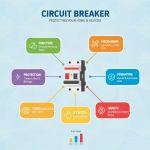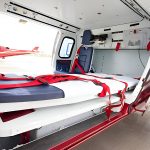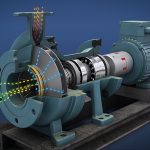Cardiogenic shock (CS) is one of the most critical conditions in cardiovascular medicine, where the heart’s ability to pump blood is severely impaired, leading to inadequate tissue perfusion and organ failure. It is a life-threatening condition, and despite significant advancements in its treatment, cardiogenic shock continues to be associated with high mortality rates, especially if not treated promptly and effectively. The global cardiogenic shock therapies market is evolving rapidly, with innovations across mechanical circulatory support devices, pharmacological treatments, artificial intelligence (AI), and telemedicine. As the healthcare industry looks to tackle this complex condition, numerous market opportunities and challenges are emerging.
To understand more about Cardiogenic Shock Treatment Market- Click for Download a Sample Report in minutes!

Understanding Cardiogenic Shock: A Brief Overview
Cardiogenic shock occurs when the heart is unable to pump enough blood to meet the body’s demands. This results in low blood pressure, inadequate oxygen delivery to vital organs, and ultimately organ failure if not treated quickly. Acute myocardial infarction (heart attack) is the leading cause of cardiogenic shock, but it can also occur due to arrhythmias, heart failure, or valvular diseases.
The severity of cardiogenic shock and its associated high mortality rate make early diagnosis and effective treatment critical. As healthcare providers continually strive to improve outcomes, several therapeutic innovations are reshaping the market, offering hope for better management of the condition and improved survival rates.
Key Drivers of the Cardiogenic Shock Therapies Market
Several factors are contributing to the growth of the cardiogenic shock therapies market, including technological advancements, an aging population, and an increasing burden of cardiovascular diseases globally. These factors are driving demand for more effective therapies and innovations that can reduce mortality and improve patient outcomes.
Advancements in Mechanical Circulatory Support Devices (MCS)
Mechanical circulatory support devices (MCS) are at the forefront of cardiogenic shock therapies. These devices help support the heart’s function when it is unable to pump blood effectively. There are several MCS devices that are increasingly being used to manage cardiogenic shock and acute heart failure:
- Intra-aortic Balloon Pump (IABP): One of the most common devices used in the management of cardiogenic shock, the IABP works by inflating and deflating a balloon in the aorta, which helps improve coronary perfusion and reduces the workload on the heart.
- Impella® Heart Pump: The Impella® is one of the most advanced MCS devices, and it is gaining widespread use in patients with severe cardiogenic shock. It is a catheter-based, percutaneous device that directly pumps blood from the left ventricle into the aorta, providing significant hemodynamic support. It offers a more effective option compared to IABP, especially in patients with severe heart failure or those who have not responded to other treatments.
- Ventricular Assist Devices (VADs): VADs are mechanical pumps that are often used as a bridge to transplantation in heart failure patients, and they are increasingly being used to treat cardiogenic shock. These devices can provide both short- and long-term support for the heart, particularly in patients awaiting a heart transplant.
The continued development of these devices is expected to enhance treatment outcomes for cardiogenic shock patients, particularly those with more advanced heart failure or who require prolonged support.
Pharmacological Innovations
Pharmacological treatments are essential in managing cardiogenic shock, and new pharmacological innovations are continuously being developed to improve survival rates and reduce complications. Several emerging drugs and therapies are providing new hope for patients with cardiogenic shock:
- Vasopressors and Inotropes: Drugs such as norepinephrine, dopamine, and dobutamine are commonly used to raise blood pressure and increase cardiac output. However, recent advancements in inotropic agents like levosimendan, which enhances myocardial contractility while also providing vasodilation, are showing promise for treating cardiogenic shock.
- Angiotensin Receptor-Neprilysin Inhibitors (ARNIs): ARNIs like sacubitril/valsartan are showing potential in the management of heart failure and cardiogenic shock. By inhibiting neprilysin, a protein that breaks down natriuretic peptides, ARNIs help improve blood flow, reduce the workload on the heart, and lower blood pressure.
- Novel Biomarkers: Researchers are also working on developing novel biomarkers to better diagnose cardiogenic shock and assess the effectiveness of treatments. Cardiac biomarkers such as troponin and BNP are already used in clinical practice, but emerging biomarkers could allow for earlier detection of cardiogenic shock, leading to faster intervention and improved survival.
These pharmacological advancements are driving the market for cardiogenic shock therapies, offering better management and improved patient outcomes.
Artificial Intelligence (AI) and Machine Learning (ML)
Artificial intelligence (AI) and machine learning (ML) are becoming increasingly integrated into healthcare, and the field of cardiogenic shock treatment is no exception. AI is being utilized to improve diagnosis, predict patient outcomes, and personalize treatment plans. Some of the key applications of AI in cardiogenic shock therapies include:
- Predictive Analytics: AI algorithms can analyze vast amounts of patient data, including clinical history, vital signs, and diagnostic results, to predict the likelihood of cardiogenic shock and identify high-risk patients before they experience significant complications. Early identification allows for prompt intervention, improving the chances of survival.
- Personalized Treatment Plans: AI is helping healthcare providers create personalized treatment protocols based on individual patient profiles. By analyzing data such as genetic markers, medical history, and response to previous treatments, AI can recommend the most effective therapy for each patient, improving outcomes and reducing unnecessary interventions.
- AI-driven Diagnostics: AI tools are also being used to interpret medical imaging and diagnostic tests more quickly and accurately. For instance, AI-powered echocardiography and CT scans are allowing for faster and more precise diagnosis of cardiogenic shock, which is crucial for timely treatment.
As AI continues to evolve, its role in cardiogenic shock treatment is expected to grow, enabling better decision-making and improving patient outcomes.
Telemedicine in Cardiogenic Shock Management
The use of telemedicine in the management of cardiogenic shock is becoming increasingly popular, especially in remote or underserved areas. By leveraging digital tools, healthcare providers can monitor patients more effectively, conduct virtual consultations, and adjust treatments as needed. Some key benefits of telemedicine in cardiogenic shock management include:
- Remote Monitoring: Wearable devices and remote monitoring tools allow healthcare providers to track patients’ vital signs and other health metrics in real time. This technology ensures continuous monitoring of cardiogenic shock patients and allows clinicians to intervene promptly if there are any concerning changes in the patient’s condition.
- Teleconsultations: Through telemedicine platforms, healthcare providers in areas with limited access to specialists can consult with experts in cardiology and cardiogenic shock management. This remote access to expert advice ensures timely intervention and improved outcomes for patients.
The widespread adoption of telemedicine is expected to significantly improve the accessibility and quality of care for patients with cardiogenic shock, particularly in rural or underserved regions.
Future Market Opportunities
As the cardiogenic shock therapies market evolves, several opportunities for growth and innovation are emerging:
Personalized Medicine
As the field of genetics and molecular medicine advances, the development of personalized therapies for cardiogenic shock is expected to play a significant role in improving patient outcomes. Genetic testing could identify patients who are more likely to develop cardiogenic shock, enabling earlier interventions and more targeted treatments. Personalized medicine may include genetically tailored drugs, customized medical devices, and biomarker-guided therapies, ensuring that each patient receives the most effective treatment based on their unique characteristics.
Regenerative Medicine and Stem Cell Therapies
Stem cell therapies have shown promise in regenerating heart tissue and improving cardiac function in patients with severe cardiogenic shock. Research into regenerative medicine and stem cell treatments could lead to groundbreaking advancements in the treatment of heart failure and cardiogenic shock, offering the potential for long-term recovery and even heart regeneration.
Advanced Imaging and Diagnostic Technologies
The future of cardiogenic shock treatment will likely see the widespread adoption of next-generation imaging techniques, such as cardiac MRI, advanced echocardiography, and CT angiography. These advanced diagnostic tools will enable earlier and more accurate detection of cardiogenic shock, leading to better patient outcomes through early intervention.
Key Challenges in Cardiogenic Shock Therapies
While the future of cardiogenic shock treatments holds much promise, several challenges remain:
High Costs of Innovative Treatments
The costs associated with advanced treatments like mechanical circulatory support devices and stem cell therapies can be prohibitively high. As these technologies become more widespread, it is essential to develop cost-effective solutions and increase healthcare reimbursement for cardiogenic shock treatments to ensure accessibility for all patients.
Limited Access to Specialized Care
Despite the growth of telemedicine and AI-driven technologies, access to specialized cardiogenic shock care remains a challenge, particularly in low-resource settings. Ensuring equitable access to cutting-edge therapies is a major hurdle that must be addressed to improve outcomes globally.
Complexity of Personalized Therapies
Personalized therapies hold great promise but also present challenges in terms of their complexity and implementation. Personalized medicine requires precise patient data, and there are still questions around the scalability and cost-effectiveness of these treatments.
For comprehensive forecast and historic data on regions, market segments, customer landscape, and companies- Click for the snapshot of Cardiogenic Shock Treatment Industry Report
Conclusion
The cardiogenic shock therapies market is poised for significant growth in the coming years, driven by innovations in mechanical circulatory support devices, pharmacological treatments, AI, and telemedicine. However, challenges such as the high cost of treatments and access to specialized care must be overcome to ensure that these advances benefit all patients. With continued innovation, the future of cardiogenic shock treatment looks promising, offering opportunities for improved patient outcomes and survival rates.
Check out Vantage Market Research’s comprehensive Cardiogenic Shock Treatment Market study for a thorough examination of market projections, major players, and geographical trends.
![[Market Research Reports] – Research Google News Blog | VMR.Biz](https://www.vmr.biz/wp-content/uploads/2022/12/logo-removebg-preview.png)











